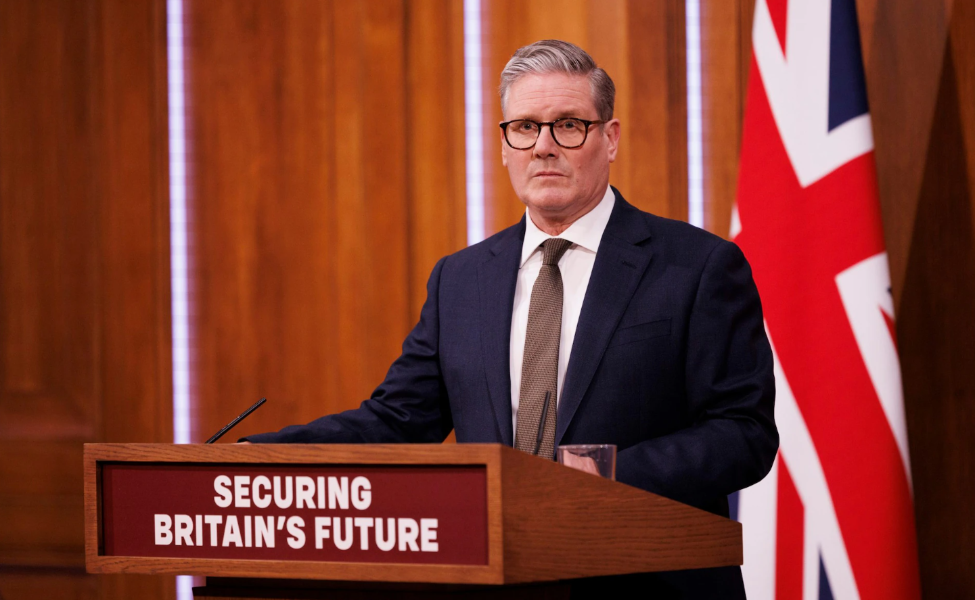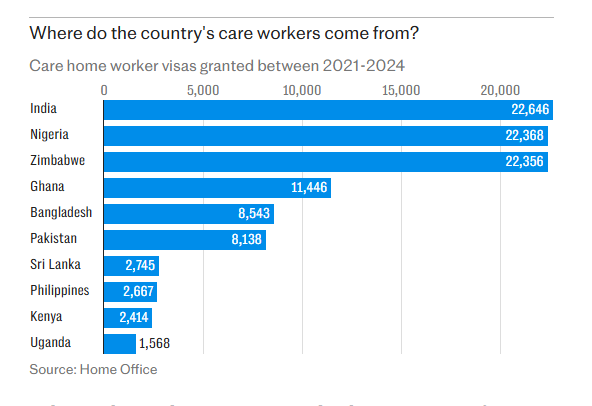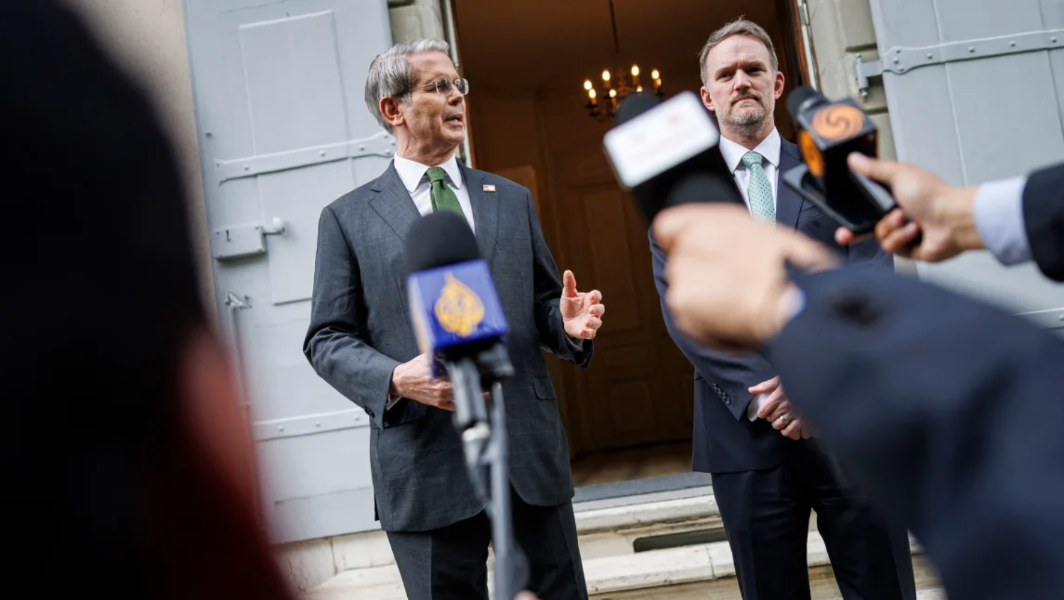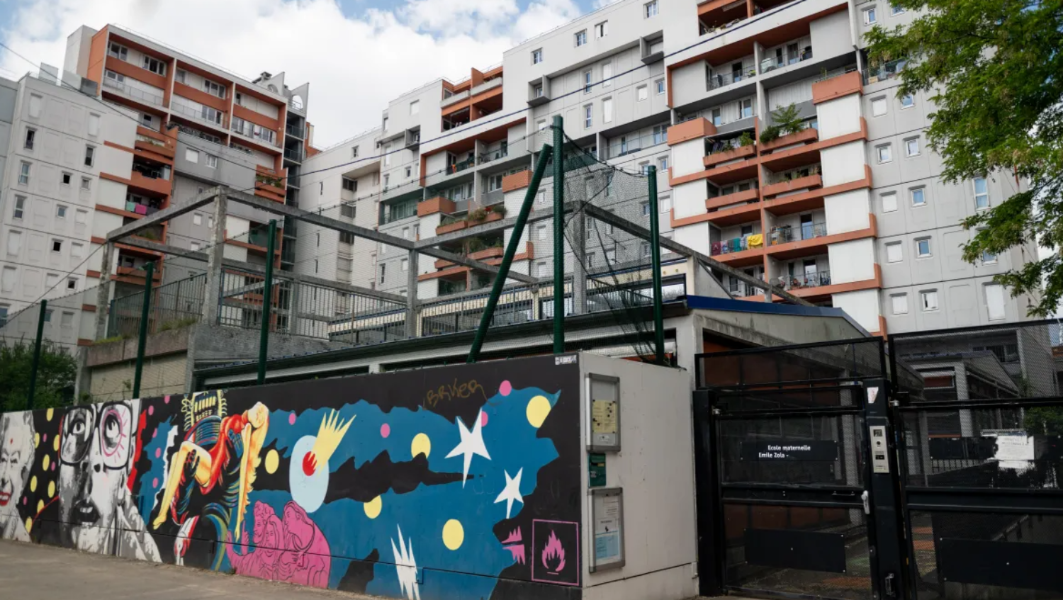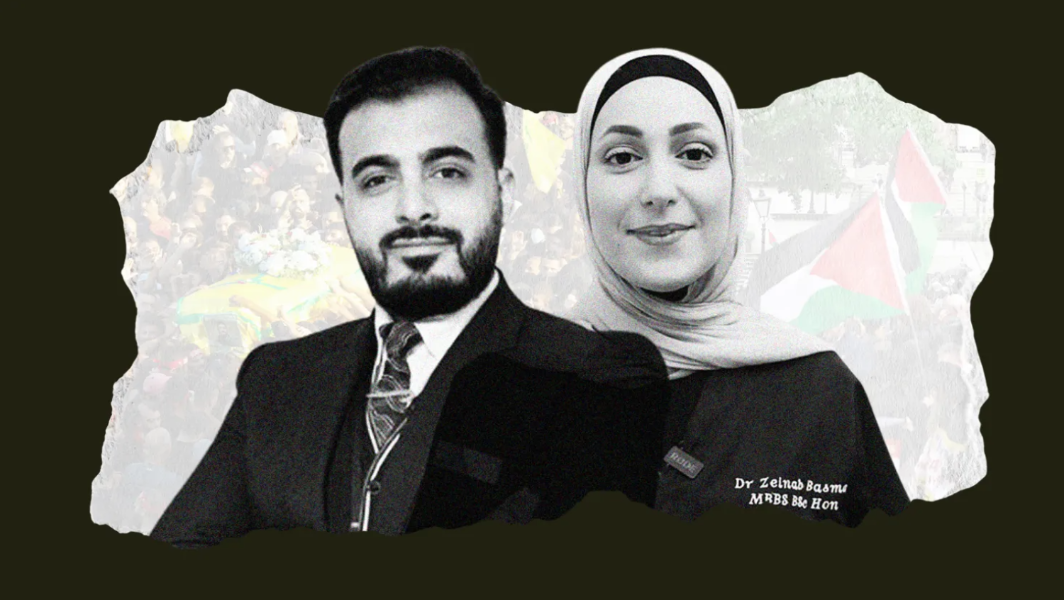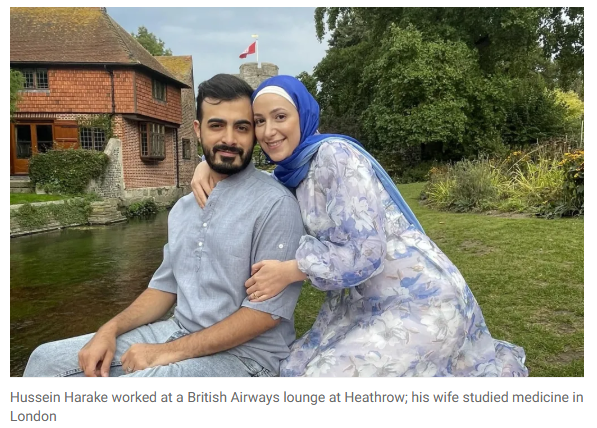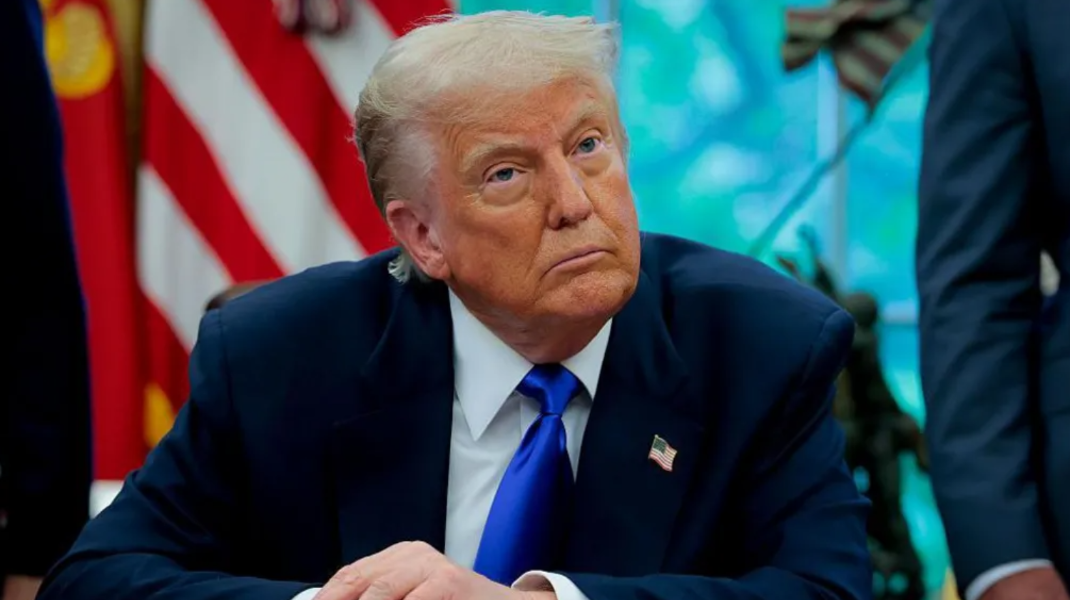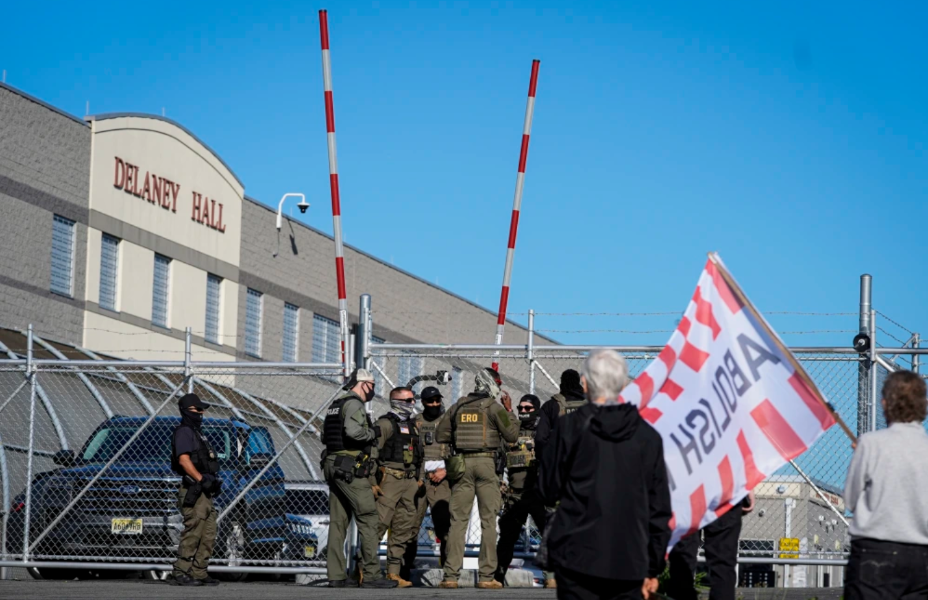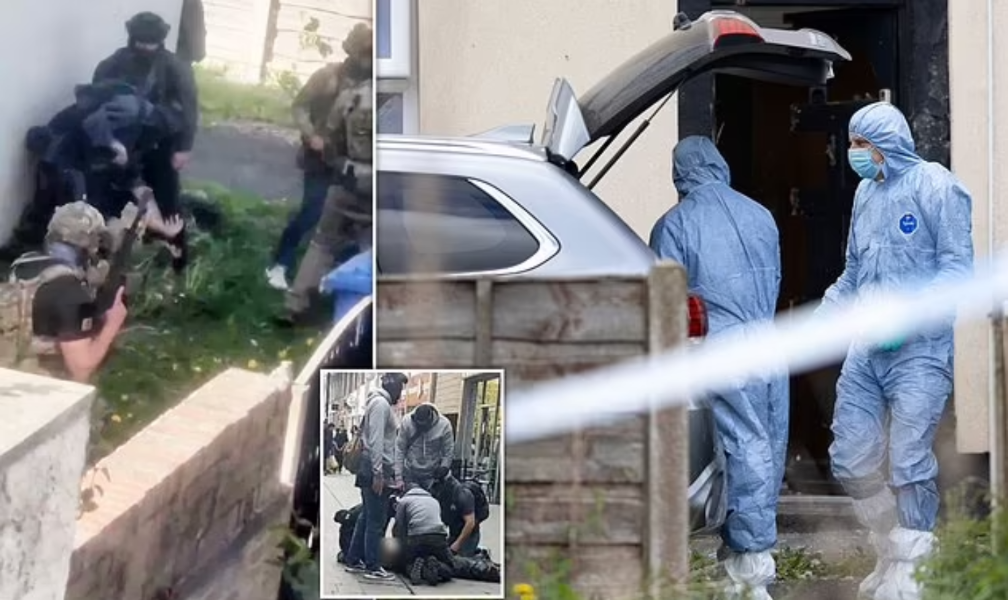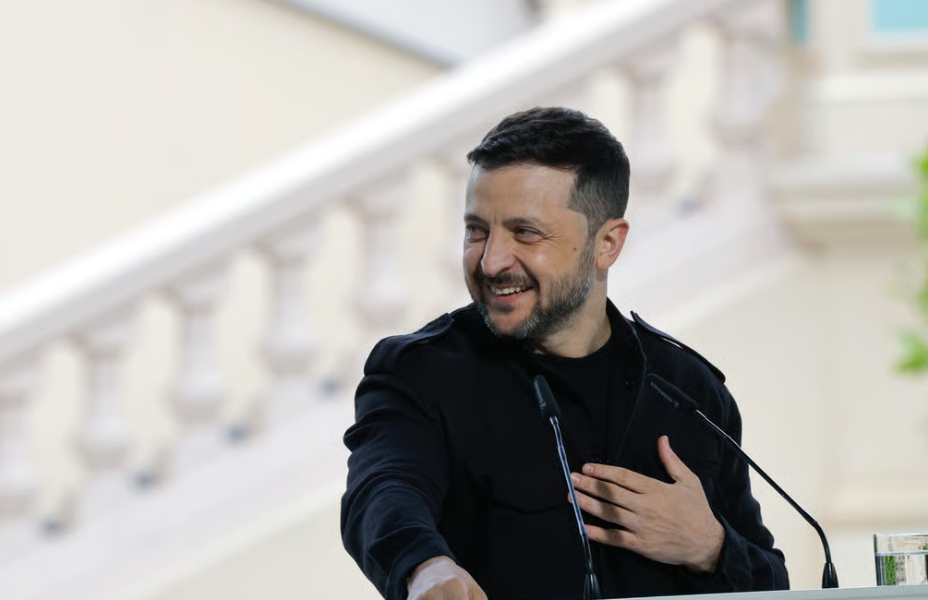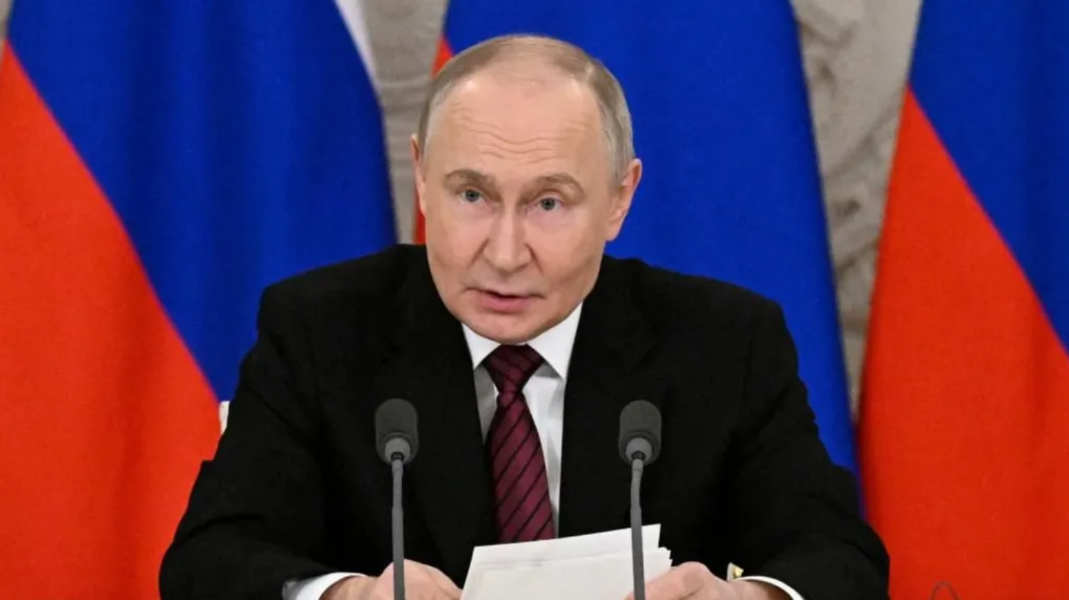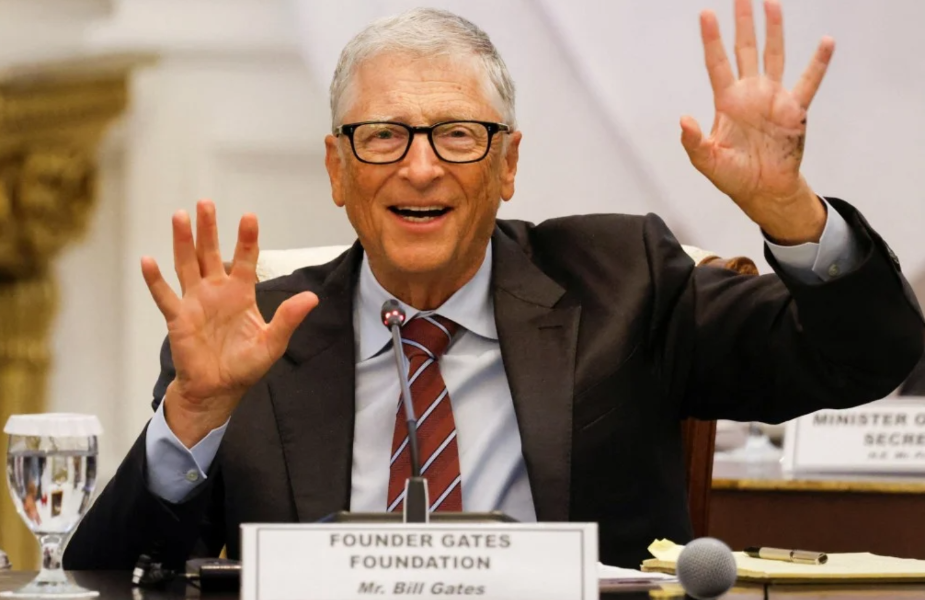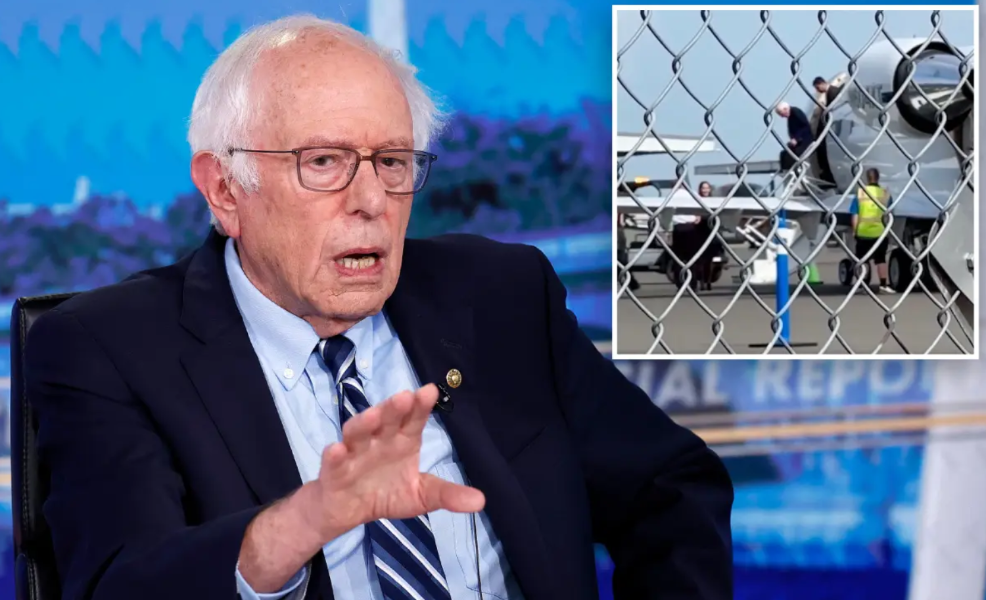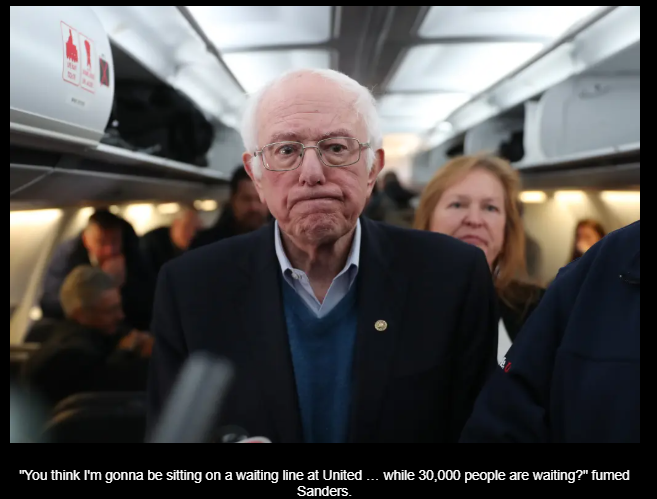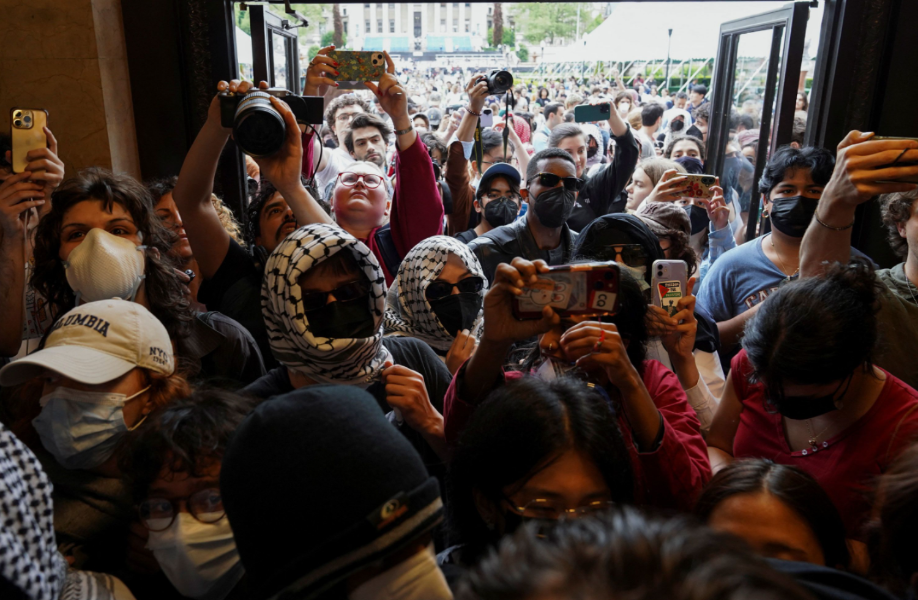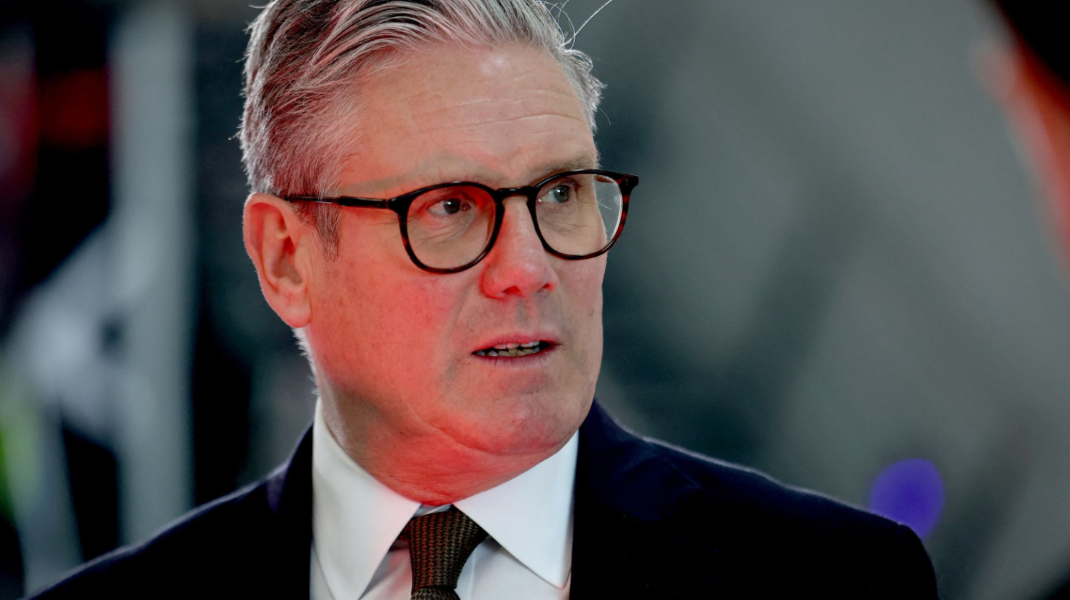-
Posts
10,746 -
Joined
-
Last visited
Content Type
Events
Forums
Downloads
Quizzes
Gallery
Blogs
Everything posted by Social Media
-
Migrants Face 10-Year Wait for Citizenship Without ‘Real Contribution’ Under Starmer’s Immigration Reform Migrants could face a wait of up to 10 years before becoming eligible for British citizenship unless they can prove a “real and lasting contribution” to the UK, under new immigration reforms set to be unveiled by Prime Minister Sir Keir Starmer. In a long-anticipated immigration white paper, Starmer will announce the end of the current automatic right to apply for indefinite leave to remain and citizenship after five years. The new system will replace it with a more selective approach aimed at reducing net migration and rewarding those who contribute economically or through public service. Only migrants who can demonstrate meaningful contributions—such as paying taxes, working in the NHS or other public services, or performing exceptional voluntary work—will be allowed to apply for permanent residency earlier than the 10-year mark. Indefinite leave to remain grants access to welfare, free healthcare, full civic rights including voting, and the right to a British passport. The changes reflect similar reforms in Denmark and are part of a broader effort to bring net migration down from 728,000, the figure recorded in the year to June 2023. The move also seeks to counter rising pressure from Nigel Farage’s Reform UK party, which capitalized on public frustration over immigration in recent local elections. Tougher Language and Skill Requirements The white paper also raises English language standards for skilled foreign workers. While current requirements are equivalent to GCSE level, new applicants must meet A-level (B2) proficiency, demonstrating the ability to communicate “fluently and spontaneously” across social, academic, and professional settings. This standard will apply not only to workers but also to foreign students and anyone seeking permanent residency or citizenship. Dependents of migrants will now need to pass a basic A1-level English test to enter the UK and progress to A2 after two years if they wish to extend their stay. Care Worker Recruitment Curtailed From later this year, care homes will be barred from hiring directly from overseas. Instead, they must recruit from a pool of around 40,000 foreign nationals already in the UK on expired or cancelled care visas, or hire British staff. “They are here and care companies should be recruiting from that pool of people, rather than recruiting from abroad,” said Home Secretary Yvette Cooper. “We are closing recruitment from abroad.” Cooper emphasized that the government will also work on long-term strategies to build the domestic workforce and introduce a new fair pay agreement for care staff. However, the move drew criticism from care sector leaders. “International recruitment wasn’t a silver bullet, but it was a lifeline,” said Martin Green OBE, chief executive of Care England. “Taking it away now, with no warning, no funding, and no alternative, is not just short-sighted – it’s cruel.” The number of care and health visas issued has already dropped from 151,500 in the year to January 2024 to 28,700 a year later. Criminal Offences and Deportation New measures will require all crimes committed by foreign nationals to be reported to the Home Office—not just those resulting in prison sentences of over a year. This increases the likelihood of deportation for lower-level offences and could affect migrants who failed to disclose prior overseas convictions. Other Reforms The graduate visa route will be tightened. Currently, foreign students may remain in the UK for up to two years after graduation without needing a job. Under the new rules, they must secure graduate-level employment to remain. Labour’s plan also reintroduces graduate-level qualification requirements for skilled worker visas. Lower-skilled workers may still enter the UK through a points-based system but only in government-designated critical sectors like IT, engineering, and construction, and on a temporary basis. Despite the changes, Labour will not set a numerical migration cap. “We’ve had many targets, promises from Conservative governments in the past, all of which have been broken,” said Cooper. “That’s why we’re not taking that… specific-target approach.” However, the Conservatives plan to challenge Labour’s position. Shadow Home Secretary Chris Philp said: “Keir Starmer pretends to be tough… Now he says that immigrants who make no contribution should still be allowed to stay.” Press release Prime Minister unveils new plan to end years of uncontrolled migration Adapted by ASEAN Now from The Telegraph 2025-05-13
-

Markets Rebound as US and China agree to slash tariffs for 90 days
Social Media replied to Social Media's topic in World News
A trolling post with oversize font removed along with replies -
The US and China have agreed a deal that will significantly cut the import tariffs, or taxes, both sides have imposed on one another for a 90-day period. US Treasury Secretary Scott Bessent said both countries would lower their reciprocal tariffs by 115% for 90 days. The announcement came after the two countries held intensive talks in Switzerland over the weekend. It was the first meeting between the two countries since US President Donald Trump had levied steep tariffs against China on its goods entering America in January. The breakthrough comes after Bessent and US Trade Representative Jamieson Greer joined other American officials in Geneva to meet with Chinese counterparts. These discussions followed last month’s dramatic move by President Trump to slap a 145% tariff on most Chinese imports. China responded in kind with its own 125% tariffs on American goods. The tit-for-tat measures caused market volatility and rattled investor confidence, while casting a shadow over global supply chains. President Trump had imposed a 145% tariff on Chinese imports, while Beijing responded with a 125% levy on some US goods. However, the US tariffs on Chinese imports will now be cut to 30% for 90 days, while Chinese tariffs on US imports will be cut to 10% for the same period of time. The US measures still include an extra component aimed at putting pressure on Beijing to do more to curb the illegal trade in fentanyl, a powerful opioid drug. But US officials said they had been positively surprised by the willingness of China to deal with the problem. "Both countries represented their national interest very well," Bessent said. "We both have an interest in balanced trade, the US will continue moving towards that." When the original tariffs were imposed it caused turmoil in the financial markets and sparked fears of a global recession. News of the pausing of the tariffs led to a rebound on stock markets. Hong Kong's benchmark Hang Seng Index jumped on the announcement, ending the day up 3%. China's Shanghai Composite Index had closed before details of the deal came out, and ended 0.8% higher. European stocks opened higher and early indications were that the main US stock markets will open up by 2-3%. While the long-term impact remains uncertain, the recent progress in negotiations could mark a pivotal step toward de-escalation. Investors appear to be watching closely, hopeful that calmer trade waters may lie ahead. Adapted by ASEAN Now from BBC 2025-05-12
-
@NotEinstein a post with an unapproved link to a known conspiracey theorist Craig Murray has been removed. 5. You will not use ASEAN NOW to post any material which is knowingly or can be reasonably construed as false, inaccurate, invasive of a person's privacy, or otherwise in violation of any law. Topics or posts deemed to be scaremongering, deliberately misleading or which deliberately distort information will be removed. In factual areas such as news forums and current affairs topics member content that is claimed or portrayed as a fact should be supported by a link to a relevant reputable source.
-
Trump Vows to Slash Drug Prices with New Executive Order President Donald Trump announced that he would be signing a new executive order aimed at dramatically reducing the cost of prescription drugs in the United States. According to Trump, the directive is designed to lower pharmaceutical prices by as much as 30% to 80%, marking a significant push to make medication more affordable for Americans. Trump made the announcement on his social media platform, Truth Social, declaring that the executive order would be signed Monday morning. “They will rise throughout the World in order to equalize and, for the first time in many years, bring FAIRNESS TO AMERICA!” he wrote. The message highlighted his belief that the United States has long paid unfairly high prices for prescription drugs compared to other countries. The central component of Trump’s proposed policy is what he referred to as the “Most Favored Nation’s Policy.” He explained, “I will be instituting a MOST FAVORED NATION’S POLICY whereby the United States will pay the same price as the Nation that pays the lowest price anywhere in the World.” This means that under the new framework, the U.S. would base its pharmaceutical pricing on the lowest rate paid by any other country, potentially saving consumers and the federal government billions of dollars. This type of policy, long discussed in Washington, has historically met resistance from pharmaceutical companies and lobbying groups that argue it could stifle innovation and lead to supply chain complications. However, Trump has repeatedly positioned himself as a disruptor of the status quo, particularly in the healthcare sector, and sees this initiative as part of his broader agenda to challenge high medical costs and restore what he calls fairness to American consumers. While details of the order have yet to be fully disclosed, Trump’s message suggests a sweeping effort to transform how the U.S. negotiates and pays for prescription medications. The announcement also reignites a debate about international pricing disparities and the role of government intervention in the pharmaceutical industry. Adapted by ASEAN Now from Reuters 2025-05-12
-
White House and Qatar in Talks Over Presidential Jet for Trump Administration The White House is currently engaged in discussions with Qatar’s royal family over the potential transfer of a luxury jumbo jet for use as Air Force One during President Trump’s second term. While initial reports hinted that the aircraft might be a gift, Qatar clarified that the plane would not be donated but rather made available for “temporary use” as part of ongoing talks between the two governments. Qatar’s Media Attaché to the United States, Ali Al-Ansari, stated that negotiations are continuing between Qatar’s Ministry of Defense and the U.S. Department of Defense. “The matter remains under review by the respective legal departments, and no decision has been made,” he confirmed. The deal, if completed, is expected to see the aircraft eventually transferred to Trump’s presidential library once his term ends, according to reporting by CBS News. This development comes as President Trump prepares for a high-profile visit to Qatar, part of his first major foreign tour since returning to office. The jet under discussion is reportedly a version of the Boeing 747-8, a newer and significantly more advanced model than the two Boeing 747-200B planes currently serving as Air Force One. ABC News described the plane as having been upgraded into a “flying palace.” While the aircraft could be a major upgrade, it won’t be immediately ready for use. Sources told CBS News that it will need retrofitting and extensive security clearance before the president can travel in it. The arrangement is also likely to provoke scrutiny, with legal experts and ethics watchdogs raising questions over the propriety and transparency of such a transfer. Karoline Leavitt, the White House press secretary, addressed the matter on Sunday. “Any gift given by a foreign government is always accepted in full compliance with all applicable laws. President Trump's Administration is committed to full transparency,” she said. The U.S. Air Force’s current presidential aircraft have been in service since 1990 and 1991 and include a range of customized features such as secure communications systems, a stateroom, and a mobile command center. Traditionally, these planes continue in use across multiple administrations. Only one retired Air Force One jet has ever been donated to a presidential library—the Reagan Library—after serving seven U.S. presidents. Qatar has a history of gifting aircraft to allies; in 2018, the Gulf state gave a luxury jet to Turkey. The talks with the U.S. may be rooted in the strong diplomatic ties established during Trump’s first term, which included a major purchase of American airplanes by Qatar announced in 2019. The deal also surfaces amid frustrations expressed by Trump over Boeing’s delays in delivering two 747-8s that were initially ordered during his first presidency. In February, Trump criticized the manufacturer, saying, “No, I’m not happy with Boeing. It takes them a long time to do, you know, Air Force One, we gave that contract out a long time ago. We may buy a plane or get a plane, or something.” Given the delays from Boeing, the proposed transfer from Qatar could provide a timely solution. However, its political, legal, and diplomatic implications are still under review, and the outcome of the talks remains uncertain. Adapted by ASEAN Now from BBC 2025-05-12
-

Israel Hamas War the Widening Middle East Conflict
Social Media replied to Social Media's topic in The War in Israel
UPDATE: Hamas to release US-Israeli hostage as part of efforts to reach Gaza ceasefire Hamas says it will release Israeli-American hostage Edan Alexander, who is believed to be the last living captive with US nationality in Gaza, as a part of efforts to reach a ceasefire agreement. The decision comes ahead of President Donald Trump's visit to the Middle East on Tuesday. Hamas said it was also intended to facilitate a deal for the entry of humanitarian aid. Gaza has been under an Israeli blockade for 70 days. Earlier a senior Hamas official told the BBC that the Palestinian armed group was holding direct negotiations with a US administration official in Qatar. The Israeli prime minister's office said it had been informed by the US of the Hamas intention to release Alexander. Adapted by ASEAN Now from BBC 2025-05-12 -
A Nursery Evacuated: How Drug Gangs Are Redrawing the Boundaries of French Authority In the Paris suburb of Saint-Ouen-sur-Seine, a decision that stunned many signaled a sobering truth about France’s growing struggle with drug gangs: local authorities moved young children out of a nursery school because they could no longer ensure their safety. The Émile Zola nursery school, located just a short Métro ride from central Paris, had for years operated under the shadow of escalating street-level drug activity. Teachers had grown used to finding small cellophane packets—presumably filled with drugs—flung over the wall into the schoolyard by dealers fleeing the police. Occasionally, children would pick up these packets and even bring them home, much to the horror of their parents. This spring, however, a canister of laughing gas thrown from a tower block window shattered the school library’s window, marking a dangerous escalation. “It really worried the teachers,” said Sébastien Phan, an opposition councillor in Saint-Ouen. “If it had hit a child standing in the courtyard, it could have killed them.” In response, the council opted to relocate the four nursery classes—comprising around 60 children aged between three and six—to two nearby buildings. Though temporary, the move is set to last until September of next year, giving the council time to install CCTV and improve security at the original site. The decision, however, struck many as a quiet acknowledgment that the police could no longer control the area. France’s justice minister, Gérald Darmanin, captured global attention last week when he said there were no longer any “safe spaces” in the country free from drug dealers. For families at Émile Zola, this came as no revelation. Walking with Phan through the neighborhood, one is struck by the surreal calm of two young men seated on stools in an alley—likely lookout scouts for the drug trade. “They wait there patiently for hours. They are very calm,” Phan observed. Just moments later, they raised an alarm cry as police sprinted past in pursuit of a suspected dealer. The warning worked—the dealer escaped. Mayor Karim Bouamrane initiated the proposal to move the school, a measure overwhelmingly supported by parents. He rejected claims that this was a concession to criminal elements. “It would have been a failure if the children’s safety hadn’t been guaranteed,” he said. But Darmanin disagreed, calling the relocation a “defeat for public authority.” He added, “I would never have agreed to the relocation of a school. The Republic must never back down.” Rodolphe Continant, a 40-year-old printer whose four-year-old son Ilya was affected by the move, echoed that frustration. “Most parents were afraid,” he said. “But we are not just parents, we are also citizens and should defend ourselves against such things. Closing the school means that we have lost. It means that drug trafficking is now normal and that we would rather close the school than deal with the problem.” France’s drug problem is not isolated to Saint-Ouen. According to the European Union Drugs Agency, France has one of the highest rates of cannabis and cocaine use in Europe. A French study shows nearly 10 percent of the population has tried cocaine at least once, while police seized more than 53 tonnes of the drug last year—double the amount from the year before. Frédéric Ploquin, a journalist specializing in organized crime, said drug dealers have increasingly moved into rural areas to escape city police pressure. “The gendarmerie, who are responsible for policing the countryside, at first did not see them coming,” he explained. But arrests in these regions have surged. The Gard area, for example, saw drug trafficking arrests jump over 150 percent between 2018 and 2023. In a shift dubbed the “Ubérisation” of the drug trade, dealers now also rely on home delivery and encrypted apps, reducing their visibility and risk. “The dealers are flexible and reactive, so they switched to home delivery. It’s less risky,” Ploquin said. Darmanin, who served as interior minister during much of the recent surge in drug activity, has called for the adoption of facial recognition technology similar to systems used in Singapore and Dubai. Meanwhile, mayors are pushing for powers to evict families of known drug dealers from public housing. Yet the underlying issue remains: as long as demand for drugs persists, supply will follow. “It’s like a pyramid,” said Phan. “The guetteurs are at the bottom but they still earn €100 a day, which is a lot of money for a 14-year-old.” For those who rise to become dealers or manage dealing points, the rewards are even greater. “After that, it is very difficult to reach out to these young people... and say, ‘Listen kid, we will try and get you a job that will pay you the minimum wage.’” Fanchon, a 29-year-old teacher and mother of a three-year-old at Émile Zola, has already made her decision. “Living here, I am always worried about my son, knowing the environment that he is growing up in,” she said. “That’s why we decided to move.” Adapted by ASEAN Now from The Times 2025-05-12
-
Heathrow Worker and NHS Doctor Under Scrutiny for Alleged Links to Hezbollah-Backed Charity A Heathrow airport worker and his NHS doctor wife are under investigation after revelations that the unregistered UK charity they run has raised hundreds of thousands of pounds for aid projects in Lebanon with apparent ties to Hezbollah, the Iran-backed militant group designated a terrorist organisation in the UK. Hussein Harake, 29, had been employed through a contractor at a British Airways lounge at Heathrow until The Sunday Times brought to light a series of social media posts in which he praised Hezbollah fighters killed in combat. In one such post, he described a deceased militant as a “martyred hero” and thanked another, who was reportedly the nephew of a senior Hezbollah commander, for his service following his death last August. Harake also shared an image at the grave of a third fighter, said to have volunteered for a Lebanese affiliate of his charity. In response to the media inquiry, British Airways confirmed that Harake had been stripped of his airport security clearance. “These are very serious allegations and are a matter for the appropriate law enforcement agencies,” the airline said. A Heathrow spokesperson added: “As soon as we became aware of this information, the individual was immediately stripped of their airport pass.” Harake and his wife, Zeinab Basma, 28, run Zayir UK, an unregistered charity that has raised more than £300,000 for aid initiatives in Lebanon. Much of the fundraising reportedly took place on British university campuses, including at Imperial College London and the London School of Economics. Basma, a doctor trained through the NHS who studied medicine at University College London, serves as the charity’s president. Though Zayir UK is not registered with the Charity Commission, it has reportedly conducted its activities with the support of Hezbollah-linked institutions in Lebanon. In a televised interview with Hezbollah’s media arm, Al Manar, Harake explained that “the charity, Zayer, is split into different departments,” adding that the children's department was “organised with the social work [department] of Hezbollah.” Harake’s sister, Zainab, who helps run the organisation in Beirut, was also quoted in an Arabic-language interview confirming collaboration with “all the religious institutions, civil society organisations and social work entities within Hezbollah.” She was also photographed at a charity event with a woman wearing a scarf bearing the Hezbollah emblem. In response to concerns raised about the group’s presence and activity in Britain, Mark Gardner, chief executive of the Community Security Trust, criticised systemic failures in oversight. “This organisation has operated on British campuses raising substantial sums, but it did not even hide its connections with Hezbollah,” he said. “The police, government, relevant regulators and those with legal responsibility must act swiftly.” The UK proscribed Hezbollah in its entirety as a terrorist organisation in 2019. Despite its dual role in Lebanon as a political party and welfare provider, the group has long called for the destruction of Israel and is subject to sanctions and legal restrictions in Britain. Posts on the Facebook page of Zayer Charity Association, a Lebanese arm of the UK organisation, included tributes to Hezbollah leader Hassan Nasrallah following his reported assassination last year. A later post in February urged supporters to attend his funeral “as an expression of loyalty and social solidarity.” Both posts have since been removed. The Charity Commission confirmed that Zayir UK had recently failed in its attempt to register. “To be considered a charity in law, an organisation must demonstrate how it meets one of the recognised charitable purposes and is established for the public benefit,” the commission stated. “The commission robustly scrutinises applications to register as a charity, and Zayir UK was unsuccessful in its recent application.” Harake is believed to have moved to Britain from Lebanon in 2022. Before his role at Heathrow, he managed a Lebanese restaurant in northwest London. He married Basma in July 2023, and the couple now reside in a £335,000 semi-detached house in London. The Metropolitan Police, when contacted, declined to confirm whether any investigation is underway. “While we do not comment on whether specific individuals may or may not be under investigation,” a spokesperson said, “any potential terrorist-related material referred to us by the public is assessed by specialist officers from the Counter Terrorism Internet Referral Unit to determine whether any further investigation or action by police may be required.” Adapted by ASEAN Now from The Times 2025-05-12
-
Trump Pushes Major Immigration Shift with "Project Homecoming" and 20,000 New Officers In an escalation of his immigration agenda, Donald Trump has directed the Department of Homeland Security (DHS) to recruit at least 20,000 additional officers to carry out a sweeping new deportation strategy. This order, issued Friday, underpins the administration's effort to encourage undocumented immigrants to leave the country voluntarily, a move Trump described as part of making it “as easy as possible” for them to exit the United States. The newly unveiled plan includes government-funded flights for those who choose to self-deport, as well as financial incentives labeled as an "exit bonus." Though the executive order outlines the scale of the expansion, it does not clarify how the massive increase in DHS personnel will be funded. Currently, U.S. Immigration and Customs Enforcement (ICE), the primary federal agency tasked with immigration enforcement, employs over 21,000 people. Within that workforce, there are 6,100 deportation officers and more than 750 enforcement removal assistants. The president’s directive would effectively double the number of staff involved in deportations, potentially altering the landscape of immigration enforcement in the U.S. In addition to the federal hires, the order also urges DHS to enhance its reach by working with other levels of government. Specifically, it calls for the deputization and contracting of state and local law enforcement officers, former federal agents, and personnel from other federal agencies to support deportation efforts. Trump has consistently advocated for expanding the role of non-federal law enforcement and even the National Guard in immigration enforcement. This new effort is encapsulated in what the Trump administration has branded “Project Homecoming,” a program focused on incentivized self-deportation. Those who choose to leave voluntarily can apply through a government app, CPB Home, and, according to DHS Secretary Kristi Noem, are eligible for a $1,000 bonus and paid travel expenses. But while the administration accelerates voluntary departure incentives, it has faced legal setbacks with other deportation initiatives. Federal courts recently blocked the use of the 18th-century Alien Enemies Act to deport Venezuelan migrants accused of gang activity. U.S. District Judge Fernando Rodriguez in Texas, appointed by Trump himself, ruled the action unlawful. A separate judge in New York later reached the same conclusion, delivering a blow to that component of the administration's broader strategy. Despite these legal challenges, Trump continues to stress the consequences for those who remain in the U.S. without legal status. “Illegal aliens who stay in America face punishments, including significant jail time, enormous financial penalties, confiscation of all property, garnishment of all wages, imprisonment, and incarceration and sudden deportation, in a place, and manner, solely of our discretion,” Trump warned. Trump's immigration plan signals a sharp return to hardline policies. With “Project Homecoming” at its center, the administration appears determined to reshape the nation's approach to undocumented immigrants through a mix of aggressive enforcement and strategic incentives. Adapted by ASEAN Now from BBC 2025-05-12
-
Bill Maher Warning to Democrats Over Embrace of young radicals cheering on terror orgs Comedian and HBO “Real Time” host Bill Maher has delivered a scathing rebuke of what he sees as a dangerous shift within the Democratic Party, warning that the party is “doomed” if it continues to indulge young radicals who, he claims, cheer on extremist ideologies and turn their backs on American values. During his Friday night monologue, Maher did not hold back in criticizing younger Democrats for what he described as an alarming embrace of anti-Israel sentiment and sympathy toward radical groups. “If the thought leaders in the Democratic Party keep encouraging and not rebuking that America is cringe and the people who run Gaza are great, the Democrats are doomed,” he stated, expressing concern about the growing disillusionment among young progressives with their own country. Maher opened his remarks by referencing polling data suggesting many young Democrats are either ashamed of America or actively embarrassed by it. Mocking that sentiment, he quipped, “Embarrassed? Like America’s your mom picking you up from school?” He added, “You’re embarrassed to be an American? Well, guess what? The feeling’s mutual, because you have no perspective.” The veteran commentator turned his attention to what he sees as a disturbing trend among young liberals who not only reject American values but also align themselves with what he views as oppressive regimes. “Their young people, their key constituency, not only don’t like their own civilization, they like the wrong one,” Maher said. “They actually think Hamas is a liberation movement. They chant for the Houthis. They’re chanting ‘We will honor our martyrs’ at Yale. They’re looking for love in all the wrong countries.” Highlighting the contradictions in supporting such movements, Maher displayed images of women in full-body Islamic coverings and challenged the youth to reassess their stances. “Someone needs to tell the kids that America is not the society where women basically have no rights, where there is zero freedom of religion, and where dissent is punishable by death,” he said. “Our democracy may be on life support, but we still have elections. They don’t.” He took specific issue with the slogan “Globalize the Intifada,” a phrase gaining traction among some campus activists. Maher derided the notion, saying, “As if worldwide suicide bombing and cosplaying Islamic revolutionaries is the answer to our problems.” One particularly troubling example, Maher said, was a recent rally hosted by Senator Bernie Sanders and Representative Alexandria Ocasio-Cortez, where a Palestinian flag was hoisted over an American one. “What should have happened after that is, one of the adults onstage should have told their young loyal followers, ‘This is not a symbol of freedom. This is,’” he said, displaying a picture of the American flag. Maher ended his critique with a broader swipe at what he sees as a pattern of indulgence by liberal elites. “Liberals are weak and woke – especially the White ones – and they indulge all sorts of nonsense from their kids, a pattern that then continues on in the Democratic Party,” he said. Reflecting on the last election, Maher continued, “It was all the gender stuff, the insistence that men can have babies and such. And now I fear that ‘We like the terrorists’ is the new that.” Maher's monologue served as both a wake-up call and a warning to Democrats: either confront the extremes within or risk political collapse. “Less than 1 in 4 Democrats under 30 say they’re proud to be an American. Fifty-four percent say they’re embarrassed by it. Embarrassed like America is your mom picking you up at school? You’re embarrassed to be an American?” “Well, guess what? The feeling’s mutual because you have no perspective.” Maher didn’t stop there. He called out progressive rallies where the American flag is disrespected—and the Palestinian flag is cheered instead. “At an AOC Bernie Sanders rally in Idaho last month, someone threw a Palestinian flag over an American flag and the crowd erupted in approval.” “What should have happened after that is one of the adults on stage should have told their young, loyal followers, this is not a symbol of freedom. This is [American flag].” Then came a warning to Democrats about where their base is headed. “Problem is the energy of the party is with the young, and the young are with the terrorists. That’s not good. So talk to your children and remind them you don’t really want to live like your heroes in Hamas. All the shit you do all day, it was all made in America.” “Your smartphone, your Grubhub, your freedom to bitch about America. That’s all American stuff. You tell your phone you want a milkshake and a guy brings it to your house, please. You couldn’t survive a week living in Intifadaville.” Adapted by ASEAN Now from Newsweek | NYP 2025-05-12
-
DHS Spokesperson Suggests Possible Arrests of House Democrats Over ICE Facility Clash A spokesperson for the Department of Homeland Security (DHS) has stirred controversy after publicly suggesting that House Democrats involved in a recent altercation at a New Jersey Immigration and Customs Enforcement (ICE) detention facility could face arrest. Tricia McLaughlin, speaking on CNN Saturday morning, alleged that members of Congress assaulted ICE officers during a confrontation at the Delaney Hall detention center in Newark on Friday. “I think that we should let viewers know there will likely be more coming,” McLaughlin said. “We actually have body camera footage of some of these members of Congress assaulting our ICE enforcement officers, including body-slamming a female ICE officer.” Her explosive claim followed a question by CNN’s Victor Blackwell, who had asked if others besides Newark Mayor Ras Baraka were arrested during the protest. Baraka had been charged with trespassing. When pressed on whether members of Congress could be arrested as a result of the incident, McLaughlin replied, “This is an ongoing investigation, and that is definitely on the table.” She added that ICE possessed video evidence to support the claims. Later that day, she posted footage on social media platform X showing chaotic scenes outside the facility. “We will not tolerate assault against our ICE law enforcement agents. By members of Congress or anyone else,” McLaughlin wrote in the post. The remarks came after a tense visit by three Democratic lawmakers—Reps. Bonnie Watson Coleman, Rob Menendez, and LaMonica McIver—all representing districts in New Jersey. According to their accounts, the purpose of the visit was legitimate congressional oversight. “As Members of Congress, we have a legal right to conduct oversight at any DHS facility without prior notice, as we have already done twice this year,” said Menendez in a statement on Friday. “Throughout every step of this visit, ICE attempted to intimidate everyone involved and impede our ability to conduct oversight. This is like nothing I’ve ever seen before, and I am shocked and disturbed that something like this happened in our community.” McIver echoed those concerns, stating the lawmakers were treated with “contempt, disrespect, and aggression from ICE.” She went further, accusing the Trump administration of abusing its authority. “From roughing up members of Congress to arresting the mayor of our state’s largest city, there is no version of today that does not show the blatant abuses of power of the Trump administration,” McIver said. The dispute has sparked broader concerns over the treatment of elected officials performing oversight duties and raised questions about the transparency and conduct of immigration enforcement agencies under the Trump administration. While no formal charges have yet been announced against any members of Congress, McLaughlin’s comments suggest that the incident is far from resolved and could escalate further as the investigation unfolds. Adapted by ASEAN Now from NBC News 2025-05-12
-
Axel Rudakubana, the 18-year-old convicted of murdering three young girls at a Taylor Swift-themed dance class in Southport, is under renewed scrutiny after allegedly throwing boiling water on a prison officer at HMP Belmarsh. The incident occurred on the afternoon of Thursday, May 8, and has reignited concerns about prison safety and the management of high-risk inmates. Rudakubana is currently serving a minimum term of 52 years in the high-security London facility following his conviction for the brutal murders of six-year-old Bebe King, seven-year-old Elsie Dot Stancombe, and nine-year-old Alice da Silva Aguiar. All three were killed in a horrifying attack last July that shocked the nation. Now, just months into his sentence, he is accused of seriously injuring a prison officer by hurling boiling water at them—a violent act that required the officer to be hospitalized. The Metropolitan Police confirmed it is investigating the incident, stating, “The Met is investigating after a prison officer was subject to a serious assault at HMP Belmarsh on the afternoon of Thursday, 8 May.” The Prison Service has also launched an internal investigation, focusing on how Rudakubana was able to access scalding water inside one of the country’s most secure institutions. It is believed that the attack took place in the prison’s healthcare unit, where Rudakubana was likely being held due to concerns about his mental state and the risk of self-harm. A prison source described his presence in that wing as “unsurprising,” given the gravity of his crimes and the length of his sentence. The incident has prompted sharp criticism from prison reform experts and former officials. Professor Ian Acheson, who previously led an independent review into Islamist extremism in prisons, issued a stern warning about rising violence behind bars and the risks faced by prison staff. “A prisoner having a kettle is not a human right, especially when it could be used as a weapon by somebody who is dangerous,” he said. “There is a forest of red flags accompanying this wretched young man and, given that, I cannot see any reason why he would have been provided with anything other than food and drink delivered to his cell, because the risk he poses is serious and very obvious,” Acheson continued. He warned, “There has been a recent escalation in violent attacks and it is reasonable to conclude that we are closer to the murder of a prison officer on duty than ever before.” Acheson criticized what he described as a culture of “appeasement” toward dangerous inmates, arguing that staff protection must take precedence over perceived prisoner rights. “The balance has become completely skewed, particularly at Belmarsh, in favour of the rights of prisoners against the harm they might pose to prison officers. That balance is dangerously out of whack and needs to be restored,” he said. The attack by Rudakubana comes just weeks after another high-profile incident involving Hashem Abedi, one of the perpetrators of the Manchester Arena bombing, who assaulted three officers with hot oil and stabbed them using makeshift weapons at HMP Frankland. These violent episodes have intensified calls for systemic reform within the prison system. Meanwhile, a public inquiry is underway to investigate how Rudakubana, who had previously been known to authorities, was able to commit his horrific crimes. The latest alleged assault adds another troubling layer to the growing questions surrounding both his case and the broader safety of those working within the UK’s prison system. Adapted by ASEAN Now from The Times 2025-05-12
-
A 40-year-old Iranian man arrested earlier this month in connection with an alleged terror plot targeting the Israeli embassy in London has been revealed to be an asylum seeker living in a taxpayer-funded home. The man, one of five Iranian nationals detained across England on May 3, was living in a property managed by Serco, a private company contracted by the Home Office to house asylum seekers. Footage circulating on social media captured the dramatic arrest, showing armed police and special forces dragging the semi-naked suspect from a terraced house in Rochdale. The arrest formed part of a coordinated operation under terrorism legislation, with additional suspects detained in Manchester, Stockport, Swindon, and London. A 24-year-old man from Manchester was released on bail with strict conditions days later. Security sources later confirmed that the alleged plot was aimed at the Israeli embassy in Kensington, West London, and that the suspects may have been just hours away from launching an attack. According to MI5, Iran has been linked to at least 20 terror plots on British soil since January 2022. The Mail on Sunday has now revealed that the Rochdale suspect was housed in a property Serco has operated for the Home Office since at least 2015. Former tenants and neighbors reported that the building typically accommodates four asylum seekers, each with their own bedroom and shared bathroom and kitchen facilities. Residents do not pay rent or utility bills, as all expenses are covered by Serco. A former occupant who stayed in the house nine years ago confirmed that new arrivals usually come in Serco vans after leaving temporary accommodation in hotels, and remain until their asylum claims are processed. One neighbor said the arrested man had lived there for over six months but kept to himself, only ever saying “Hello.” Another neighbor claimed a Serco official informed her the company would no longer use the house to accommodate asylum seekers. It is believed the suspect entered the UK illegally via a small boat and subsequently claimed asylum. The case has intensified fears among police and government officials that the Calais migrant route is being exploited by operatives linked to hostile foreign powers, particularly Iran, to infiltrate the UK for potentially violent missions. Terrorism expert Professor Anthony Glees of Buckingham University expressed grave concern over the security implications. “The Calais boat route self-evidently presents a clear and present danger to national security,” he said. “I have always said migrants should be met by warships, not lifeboats. A dedicated agent of a hostile state will use this route to come into the country.” This year alone, more than 11,000 migrants have arrived in Britain from Calais by small boat, despite Prime Minister Sir Keir Starmer’s promises to dismantle the criminal networks responsible for smuggling. Last year, Iranians ranked third among nationalities arriving via this method, with 4,243 people crossing the Channel from that country. In a related investigation, three other Iranian men were arrested in London on May 3 under the National Security Act, accused of espionage. A fourth individual was taken into custody on Saturday in northwest London in connection with the same probe. Both Serco and the Home Office have declined to comment on the developments. Related Topic: 5 Arrested in Suspected Terror Plot as Counter- Terrorism Officers Raid Multiple UK Locations Adapted by ASEAN Now from Daily Mail 2025-05-12
-
Ukrainian President Volodymyr Zelensky hailed Vladimir Putin's offer for direct peace talks with Kyiv, calling it "a positive sign." Zelensky says he is ready to meet Russian President Vladimir Putin "personally" in Istanbul on Thursday for talks over ending the war. "There is no point in prolonging the killings. And I will be waiting for Putin in Türkiye on Thursday. Personally," Zelensky wrote. This was following a potential turning point in the conflict, when the Russian leader opened the door to direct negotiations with Ukraine "without any preconditions," suggesting a meeting in Istanbul next Thursday. His overture followed renewed pressure from Kyiv's Western allies on Saturday. “The entire world has been waiting for this for a very long time,” Zelensky wrote on X Sunday morning, referring to Putin’s announcement. “It is a positive sign that the Russians have finally begun to consider ending the war.” President Donald Trump responded optimistically on his TruthSocial platform early Sunday, writing, “It was a potentially great day for Russia and Ukraine!” He continued, “Think of the hundreds of thousands of lives that will be saved as this never-ending ‘bloodbath’ hopefully comes to an end. It will be a whole new, and much better, WORLD. I will continue to work with both sides to make sure that it happens. The USA wants to focus, instead, on Rebuilding and Trade. A BIG week upcoming!” French President Emmanuel Macron, however, struck a more cautious tone. He described Putin’s proposal as “a first step, but not enough,” and suggested the Russian leader was “looking for a way out, but he still wants to buy time.” Putin’s announcement came at the conclusion of a three-day ceasefire declared by Moscow to mark the 80th anniversary of Victory in Europe (VE) Day. The statement also followed a coordinated effort by European leaders, including UK Labour leader Sir Keir Starmer, who were in Kyiv on Saturday urging Moscow to extend the pause into an unconditional 30-day ceasefire. Starmer, alongside leaders from France, Germany, and Poland, met Ukrainian President Volodymyr Zelensky in Kyiv and later joined a virtual summit with leaders from nearly two dozen European countries. “All of us here, together with the US are calling Putin out,” Starmer said during a joint press conference. “If he’s serious about peace, then he has a chance to show it now by extending the pause into a full, unconditional 30-day ceasefire. With negotiations to follow immediately once a ceasefire is agreed. No more ifs and buts, no more conditions and delays.” Starmer warned that should Putin reject peace efforts, Western nations would respond decisively. “If the Russian leader turns his back on peace, we will respond. Working with President Trump, with all our partners, we’ll ramp up sanctions and increase military aid for Ukraine’s defence.” Kremlin spokesman Dmitry Peskov said in response, “We need to think about this. This is a new development,” but reiterated that Russia would not respond to external pressure. “We are open to dialogue, we are open to attempts to resolve [the conflict] in Ukraine. But trying to put pressure on us is rather useless,” he told CNN. Peskov also told ABC News that Russia would consider a 30-day ceasefire if it included a halt to Western arms deliveries to Ukraine — a condition flatly rejected by European and U.S. leaders. “Otherwise it will be an advantage for Ukraine. Ukraine will continue their total mobilisation, bringing new troops to (the) frontline,” he warned. The day was also marked by a highly public and vulgar reaction from Dmitry Medvedev, former Russian president, who tweeted, “Macron, Merz, Starmer, and Tusk were supposed to discuss peace in Kiev. Instead, they are blurting out threats against Russia … Shove these peace plans up your pangender ar**s!” The historic visit by leaders of the UK, France, Germany, and Poland to Kyiv was the first of its kind, widely viewed as a strategic counterpoint to Putin’s Victory Day celebrations in Red Square, where he was joined by China’s President Xi and leaders from Africa, Asia, and Latin America. The geopolitical divide remains stark, and whether peace talks materialize this week as Putin proposes remains uncertain. Adapted by ASEAN Now from The Times | Politico 2025-05-12
-
@SMIAI an inflammatory troll post removed.
-
Putin Proposes Renewed Peace Talks with Ukraine Amid International Pressure Russian President Vladimir Putin has made a rare late-night televised appeal from the Kremlin, calling for direct peace talks with Ukraine to begin "without delay, as early as 15 May." In his statement, Putin said, “We seek serious talks... to remove the root causes of the conflict and start moving towards a lasting, strong peace.” His remarks come in the wake of intensified diplomatic activity in Kyiv, where European leaders gathered to urge Moscow to agree to an unconditional 30-day ceasefire. Earlier on Saturday, the leaders of the United Kingdom, France, Germany, and Poland met with Ukrainian President Volodymyr Zelensky in Kyiv as part of what they described as a “coalition of the willing.” Their coordinated message, delivered after a phone call with U.S. President Donald Trump, included a clear demand for Russia to halt hostilities for one month starting Monday. They warned that Russia would face "massive" sanctions if it failed to comply with the ceasefire appeal. Following that meeting, UK Prime Minister Sir Keir Starmer stated, “All of us here together with the US are calling [Russian President Vladimir] Putin out. If he is serious about peace, then he has a chance to show it.” Zelensky echoed this sentiment, saying, “Thank you all for standing with us. Today we will focus on how to build and guarantee real and lasting security.” In response to the ceasefire demand, Kremlin spokesman Dmitry Peskov indicated that Moscow would consider the proposal but emphasized that “trying to pressure us is quite useless.” Hours later, Putin appeared on national television to outline his own peace proposal, suggesting that the talks be held in Istanbul, Turkey. He also announced his intention to discuss the plan with Turkish President Recep Tayyip Erdogan on Sunday. Putin’s address suggested that such talks could lead to new ceasefires and even a broader truce, though he framed them as conditional on sincere engagement from Ukraine. “This would be the first step towards a long-term, lasting peace, rather than a prologue to more armed hostilities after the Ukrainian armed forces get new armaments and personnel, after feverish trench-digging and the establishment of new command posts,” he said. “Who needs peace like that?” He also accused Ukraine of ignoring multiple Russian proposals for ceasefires, including a 30-day suspension of attacks on energy infrastructure, an Easter truce, and a recent halt timed to coincide with World War Two commemorations. “In spite of everything, we are offering the Kyiv authorities to resume the negotiations... resume direct talks, and I stress, without any preconditions,” he said. Ukraine has not yet officially responded to Putin’s proposal. Kyiv has previously contended that Russia continued military operations during earlier declared ceasefires. Moscow has made similar accusations against Ukraine. The last round of direct talks between Russia and Ukraine occurred shortly after the war began over three years ago. Putin’s latest statement signals a potential shift, or at least a tactical move, amid growing global pressure and the threat of further sanctions. Whether this marks a genuine opportunity for diplomacy or a strategic ploy remains to be seen. Adapted by ASEAN Now from BBC 2025-05-12
-
US Pushes Forward with Private Aid Plan for Gaza Amid UN Opposition The United States has confirmed it is moving forward with a controversial plan to deliver humanitarian aid to Gaza through private firms, despite vocal opposition from the United Nations and humanitarian agencies. Speaking in Jerusalem, US ambassador to Israel Mike Huckabee detailed an operation in which private contractors, supported by security forces, will manage “distribution centres” aimed at reaching more than one million Palestinians initially. “The Israelis are going to be involved in providing necessary security because this is a war zone. But they will not be involved in the distribution of the food, or even the bringing of food into Gaza,” Huckabee said. While Huckabee insisted the distribution process would remain independent of Israeli military control, he acknowledged that Israeli forces would guard the perimeters of these aid hubs. The move is part of an effort by the US and Israel to prevent aid from being intercepted by Hamas. “Previous actions have often been met with Hamas stealing the food that was intended for hungry people,” the ambassador added. However, the UN has firmly stated it will not participate in the initiative. “We will not participate,” said Jens Laerke, spokesperson for the UN’s Office for the Coordination of Humanitarian Affairs (OCHA). “Only in efforts that are in line with our principles.” UN officials argue the plan undermines neutrality and appears to politicize aid, warning it could set a troubling precedent. At a briefing in Geneva, UNICEF spokesman James Elder criticized the proposal, warning it may end up harming those it aims to help. He emphasized that forcing civilians to travel to militarized aid zones could exclude the most vulnerable, including children and the elderly. “The plan that had been laid out would lead to more children suffering, not fewer,” he said. Humanitarian conditions in Gaza continue to deteriorate. OCHA reports that a third of the territory’s community kitchens have shut down in the past two weeks due to a lack of food and fuel. Among the closures were the final two field kitchens of the US-based World Central Kitchen, which had been providing 133,000 meals daily before it ran out of supplies. Basic food prices have soared, with a 25kg sack of flour now costing $415 in Gaza City, a thirtyfold increase since February. The new system will be overseen by the Gaza Humanitarian Foundation (GHF), a newly formed NGO that claims it will operate independently and according to humanitarian principles. A 14-page document from GHF outlines plans to set up four distribution hubs, initially targeting 1.2 million people, with the goal of eventually reaching all Gazans. “GHF was established to restore that vital lifeline through an independent, rigorously-audited model that gets assistance directly – and only – to those in need,” the document states. It adds that months of war have caused “the collapse of traditional relief channels in Gaza.” The GHF’s board reportedly includes former leaders from major humanitarian organizations, including a former CEO of World Central Kitchen and David Beasley, the former American head of the UN’s World Food Programme, although his involvement has yet to be confirmed. US officials, including Special Envoy for the Middle East Steve Witkoff, have briefed members of the UN Security Council on the plan, which is being positioned as a key part of President Donald Trump’s upcoming diplomatic push to the Gulf, where officials hope to secure funding from wealthy Arab states. Meanwhile, Israeli media report that its military is already constructing aid distribution hubs in Rafah, located in a designated “sterile zone” to prevent Hamas access. The plan suggests that only one representative per family, screened for security, would be allowed to collect supplies on foot, with Israeli troops stationed outside to avoid direct contact with aid workers. The UN, however, warns the plan risks entrenching displacement. “Locating all the distribution points in the south appears designed to use aid as ‘a bait’ to forcibly displace Gazans once again,” Elder said. With 90% of the population already displaced, the move could deepen the crisis. Aid officials fear that accommodating military demands in this case could weaken perceptions of the UN’s neutrality, potentially compromising future operations in other conflict zones. Adapted by ASEAN Now from BBC 2025-05-10
-
Bill Gates Accelerates Philanthropic Mission, Plans to Donate Over $200 Billion by 2045 Bill Gates, one of the most prominent philanthropists of our time and co-founder of Microsoft, has announced a bold plan to donate more than $200 billion over the next two decades. His goal: to tackle some of the world’s most pressing issues—including poverty, malnutrition, and deadly diseases like polio—at an accelerated pace. By moving up his original timeline, Gates intends to give away nearly all of his fortune within his lifetime. The 69-year-old billionaire explained his decision by citing the urgency of today’s global challenges. “Philanthropy really can change the world,” Gates said in an interview. He noted the impact of the Bill & Melinda Gates Foundation over its 25-year history and expressed hope that this legacy would inspire others. “We’ve been able to have huge impact and so, hopefully, that inspires people both in global health and in other areas.” The Gates Foundation, which he chairs, will now double its spending over the next 20 years and officially close by 2045. Previously, its charter required it to wind down operations 20 years after Gates’s death. This new timeline reflects his belief that the need for funding solutions to global problems has become more urgent than ever. Gates expects to contribute more than $200 billion to this effort, a figure that includes his current wealth and the foundation’s endowment, which stood at $77.2 billion at the end of 2024. It also incorporates substantial contributions from longtime friend and philanthropist Warren Buffett. Even after this extraordinary level of giving, Gates will remain one of the wealthiest individuals on the planet, with an estimated net worth of $108 billion according to the 2025 Forbes list. “I’ll still be comfortable,” he said, adding that his family will also be financially secure. Despite remarkable progress in global health—including the halving of childhood mortality rates and effective treatments for HIV—recent cuts in global aid from wealthy nations have jeopardized these gains. Gates emphasized that he is not ramping up his giving simply to compensate for these governmental reductions. “I’m not being more generous because others are being less generous,” he clarified. He stressed, however, that continued government support is vital, particularly in the effort to eradicate polio. His foundation has already invested $6.2 billion in the campaign. “Without the U.S. involvement and resources, it isn’t going to succeed,” Gates said. Looking to the future, he warned that setbacks in global health are possible without renewed support. “Instead of childhood deaths going down from five million to four million over the next four years, unless we’re able to reverse a lot of these cuts, it will go back up to six million, and going backwards on that is crazy,” he said. He urged the U.S. Congress to maintain its budget for global health initiatives and mentioned his last conversation with President Trump took place in February. Innovation, particularly artificial intelligence, is another key part of Gates’s vision for doing more with fewer resources. “AI will play a dramatic role in improving what we’re able to do even with very stringent financial constraints,” he said. Gates’s philanthropic strategy has evolved significantly. While once focused on high-tech health interventions like vaccines, he now places a major emphasis on combating malnutrition, which he called one of his most exciting priorities. Malnutrition contributes to half of all deaths among children under five and causes lasting developmental harm. He also hopes to support a gene therapy that could offer a functional, affordable cure for HIV, especially for low-income nations. Since its inception in 2000, the Gates Foundation has disbursed over $101 billion from Gates, his former wife Melinda French Gates, and Buffett. Their funds have supported innovations ranging from vaccines for meningitis and malaria to new treatments for tuberculosis and women’s health. Melinda French Gates co-chaired the foundation until last year, when she stepped down to pursue her own philanthropic goals. Looking ahead, Gates expressed a desire for more billionaires to follow suit and contribute greater portions of their wealth to meaningful causes. “At that point, there’ll be lots of rich people who will be young and up-to-date about how to build an organization and what AI has done and what politics has done, and what part of the equity agenda remains incomplete,” he said. Adapted by ASEAN Now from Wall Street Journal 2025-05-10
-
Bernie Sanders Defends Private Jet Use During Anti-Oligarchy Tour: “No Apologies for That” Senator Bernie Sanders has stirred controversy after unapologetically defending his use of private jets during his recent “Fighting Oligarchy” tour, a campaign aimed at challenging the ultra-wealthy. Despite criticism for the apparent contradiction between his socialist values and his high-cost travel methods, the 83-year-old Vermont senator stood firm, insisting that private air travel was a logistical necessity. In a candid exchange on Fox News’ “Special Report,” Sanders dismissed the backlash surrounding his jet-setting, saying, “No apologies for that. That’s what campaign travel is about. We’ve done it in the past. We’re gonna do it in future.” Asked about the optics of using private aircraft while railing against the rich, Sanders responded pointedly: “You think I’m gonna be sitting on a waiting line at United … while 30,000 people are waiting?” Sanders and Representative Alexandria Ocasio-Cortez of New York, a fellow progressive firebrand, were recently photographed stepping off a Bombardier Challenger 604 — a luxury jet that reportedly costs around $15,000 an hour to charter. Their cross-country tour, intended to highlight income inequality and corporate greed, faced renewed scrutiny after Federal Election Commission filings showed Sanders’ campaign spent more than $221,000 on private air travel in the first quarter of 2025 alone. Critics quickly pounced on what they saw as a glaring contradiction between Sanders’ environmental advocacy and his carbon-heavy travel choices. When challenged on this point, Sanders fired back: “When was the last time you saw Donald Trump during the campaign mode at a national airport?” The backlash online was fierce and immediate. “Socialists are beyond parody,” one user posted on X, formerly known as Twitter. Another wrote, “A multi-millionaire who’s too good to wait in line at the airport like the rest of us peasants and is instead flying around on private jets is ‘fighting oligarchy’ and climate change?” One particularly biting comment read, “He should just admit that he thinks his work is more important than the work of people on a United flight.” Despite the uproar, Sanders remained unmoved. He stressed that the demands of a national campaign require fast, efficient travel. “You run a campaign and you do three or four or five rallies in a week. That’s the only way you can get around to talk to 30,000 people,” he said, underscoring the intensity of his schedule and the practical constraints of commercial air travel. While Sanders’ unapologetic tone has drawn criticism, it also reflects a broader tension within progressive politics — the balance between ideals and the logistical realities of modern campaigning. For now, the senator seems content to take the heat, confident that the urgency of his message justifies the means by which it is delivered. Adapted by ASEAN Now from NYP 2025-05-10
-
Columbia's Firm Response to Protest Garners Trump Administration Support Amid Federal Funding Battle The Trump administration has publicly praised Columbia University for its decisive handling of a recent pro-Palestinian protest, signaling approval of the Ivy League school’s shift toward stronger disciplinary measures as it negotiates to restore lost federal funding. On Wednesday, demonstrators occupied the university’s main library, reigniting tensions reminiscent of last spring’s turbulent protests. The administration commended Acting President Claire Shipman for what it described as a “strong and resolute” stance, stating she “has met the moment with fortitude and conviction.” “Disruptions to our academic activities will not be tolerated and are violations of our rules and policies,” Shipman stated firmly. She confirmed that she had called upon the NYPD to assist in securing the library after tensions escalated. Two campus security officers were reportedly injured when protesters forced entry into the building. Behind the scenes, Columbia is navigating sensitive and consequential discussions with the federal government concerning the reinstatement of its federal funding. The Trump administration has proposed a consent decree—a legal agreement that would place the university under federal judicial oversight to ensure compliance with specific terms. This proposal follows the Biden-era White House’s move in March to cancel approximately $400 million in federal grants and contracts. That decision stemmed from concerns that Columbia failed to adequately protect Jewish students during previous pro-Palestinian demonstrations, which some perceived as fostering an antisemitic environment. Wednesday’s response from Columbia stood in stark contrast to its approach during last year’s campus unrest. In 2024, sprawling encampments and occasionally violent demonstrations forced the administration to shift classes online and cancel the school’s main commencement ceremony. This time, university leadership acted quickly to curtail the disruption and maintain control of campus facilities. The protest was organized in part by a group called Columbia University Apartheid Divest, which used social media to rally supporters. “BRING NOISE, WEAR MASK,” read one post encouraging participation. Protesters wearing kaffiyeh scarves and face coverings stormed the library shortly after 3 p.m. Police were called to the scene by 3:55 p.m., and arrests followed soon after. In a televised interview later that evening, New York City Mayor Eric Adams weighed in, urging parents to speak with their children about appropriate forms of protest. “This is not what you do on a college campus, particularly going inside a library and protesting in this manner,” Adams said. In a seperate incident a terrorist-supporting anti-Israel protester was charged with federal hate crimes, prosecutors said Wednesday, after he allegedly carried out three separate assaults on Jewish people in New York City — including some who are students at Columbia University. Adapted by ASEAN Now from Wall Street Journal | NBC 2025-05-10
-
Starmer Faces Internal Revolt as Labour MPs Reject 'Impossible to Support' Welfare Reform Plans Sir Keir Starmer is under mounting pressure from within his own party as dozens of Labour MPs signal they cannot support his proposed welfare reforms without significant changes. The prime minister has been urged to delay the legislation, with dissenting voices describing the plans as “the biggest attack on the welfare state” since the Conservative-led austerity era. The reforms, which aim to slash the welfare budget by £5 billion annually and tighten the eligibility criteria for incapacity benefits, have sparked deep concern among MPs and disability advocates alike. A letter circulated among Labour backbenchers, and seen by Sky News, warned that the reforms are “impossible to support” in their current form and called for an immediate pause. “The planned cuts of more than £7bn represent the biggest attack on the welfare state since George Osborne ushered in the years of austerity and over three million of our poorest and most disadvantaged will be affected,” the letter stated. The MPs went on to argue that the proposed measures have already caused “a huge amount of anxiety among disabled people and their families.” While the government believes the reforms are necessary to address structural problems in the current benefits system, critics argue they risk doing more harm than good. “Whilst the government may have correctly diagnosed the problem of a broken benefits system and a lack of job opportunities for those who are able to work, they have come up with the wrong medicine,” the letter continued. “Cuts don't create jobs, they just cause more hardship.” The MPs are demanding a delay in the legislative process until full impact assessments on employment, health, and social care outcomes are published. They argue that voting on the reforms without this information would be irresponsible and unfair to those who will be directly affected. A government assessment released in March already offered a grim preview of the possible fallout, estimating that an additional 250,000 people—including 50,000 children—could be pushed into relative poverty by the end of the decade if the reforms go ahead as planned. The letter also stresses that any meaningful reform of the benefits system must involve collaboration with disabled people and their representative organisations. “We also need to invest in creating job opportunities and ensure the law is robust enough to provide employment protections against discrimination,” the MPs wrote. “Without a change in direction, the green paper will be impossible to support.” This backlash comes at a difficult moment for Sir Keir and his leadership team, following disappointing results in the recent local elections. Labour lost the Runcorn by-election and control of Doncaster Council to Nigel Farage’s Reform UK, raising questions about the party’s electoral strategy and direction. Internal party tensions are rising, with MPs from traditional northern constituencies urging a stronger stance on immigration, while those representing urban and metropolitan areas caution against alienating progressive voters who might turn to the Greens or other left-wing alternatives. In response to the unrest, Starmer dispatched Pat McFadden, his chief cabinet enforcer, to reassure MPs in a private meeting on Wednesday night. Addressing a group of around 100 MPs, McFadden acknowledged the political storm brewing and sought to refocus the party. He warned that Labour was now facing “the fight of our lives” against the populist surge led by Nigel Farage. As the government prepares for a parliamentary vote on the welfare reforms, it remains to be seen whether Starmer can maintain party unity—or whether this rebellion will mark a deeper ideological fracture within Labour. Adapted by ASEAN Now from Sky News 2025-05-10


